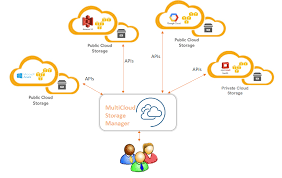Are Certifications Valued by Organizations?
Certifications ·
I often see posts on social media around the following topics:
What certifications can help me get hired?
What certifications are companies looking for?
Are certifications at all important to organizations?
Previously on this site, I provided some guidance into how to start a certification journey with Azure, AWS, or Google Cloud. These posts provide an understanding of the paths to take in order to map out a direction to take and resources to use to get there.
This article will explore how individuals with certifications help and provide value to organizations. We will look at organizations in two categories, end users and service providers.
End user organizations would be categorized as those that are consuming cloud services. The value of certifications within this group is difficult to quantify. In my opinion, based on what I see from recruiters that are staffing for internal IT departments, certifications are important at least within the qualification aspect of the employment process. Having a certification can help you get beyond the screening phases and help you get an interview with the hiring manager. Without a certification, you may find yourself at the bottom of the recruiter’s pile of candidates. Just having a certification shows that you have taken ownership in your career and the initiative to study and pass the exam.
Service provider organizations are much easier to quantify with clear examples of importance. Within all hyperscalers, the amount of certified individuals directly influences the partnership level of the organization.
Google doesn’t even consider an organization a “partner” until they have two individuals with the GCP Architect Professional certification. They have additional certifications available for Data engineer and Architect associate that will most likely become relevant as they build more depth to their partner program.
AWS has certification requirements for each of their Partner tiers and a second set of requirements for their specialized competencies. The requirements for each tier includes an increased need to Foundation, Associate, and Professional level certifications. The same individual cannot be counted for an Associate and a Professional, so there is a need to balance these certifications. An AWS service provider must be at the Advanced tier at a minimum before they can consider a specialty. These tiers levels and competencies are listed in partner finder when end user organizations are searching for a provider.
Microsoft has tied certifications and partner levels for a long time. This has continued within their Cloud Solution Provider (CSP) program with the role-based exams. Microsoft tiers their program as Silver and Gold partner levels. Upon earning partner status, a CSP can continue to obtain Silver or Gold competencies as they have more individuals certify in the variety of role based exams. These certified individuals are the primary criteria in many of the competencies. As each competency is obtained, these are added to the partner’s badge and in partner finder.
In addition to the competency levels, Microsoft has also built out specializations and a Azure MSP Expert program with increased requirements for certified individuals. Therefore, the service provider will need to invest in growing their number of certified individuals internally or hire people with certifications.
Let’s revisit the questions that were posed at the beginning of this article.
What certifications can help me get hired? It depends, but any Associate or Professional/Expert certification can be viewed as valuable, especially with AWS. If you are looking to get in the door with a GCP focused company, then Professional is your best route. Companies that focus on Azure, it would benefit to have either an Administrator Associate or Architect Expert along with a specialized Associate certification like Security or Data Engineer.
What certifications are companies looking for? The primary certifications for Google is Architect Professional, AWS starts with Architect or DevOps Associate or Professional, and Azure would be Administrator Associate or Architect Expert.
Are certifications at all important to organizations? As I have discussed throughout, the answer is definitely “Yes”. The financial leverage that you may hold depends on the organizational goals and direction.
When talking to an organization, ask the right questions about where they are focused on growth with a cloud provider. Research their partner levels through online partner finders before interviewing to know their tier, and if your certifications can enable them to increase partner level or add a competency. You should also ask if they provide pay incentives for obtaining certifications. This will allow you to maximize your potential as you continue to learn and grow.
Good luck on your continued cloud journey.
